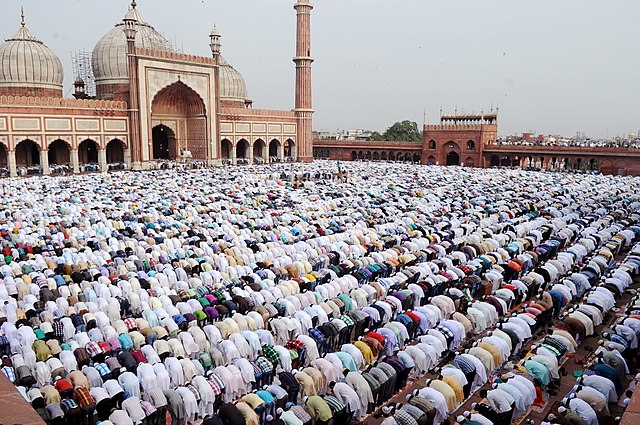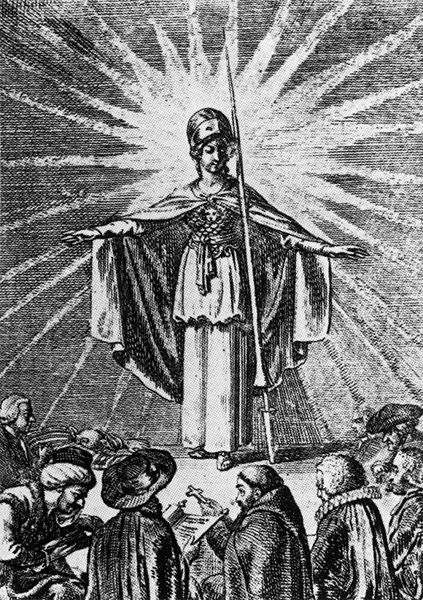Freedom of religion or religious liberty is a principle that supports the freedom of an individual or community, in public or private, to manifest religion or belief in teaching, practice, worship, and observance. It also includes the right not to profess any religion or belief or "not to practise a religion".
Muslims praying at the Jama Masjid in India, a majority-Hindu country.
Minerva as a symbol of enlightened wisdom protects the believers of all religions (Daniel Chodowiecki, 1791)
The Declaration of the Rights of Man and of the Citizen (1789) guarantees freedom of religion, as long as religious activities do not infringe on public order in ways detrimental to society.
Nineteenth century allegorical statue on the Congress Column in Belgium depicting religious freedom
The United Nations (UN) is a diplomatic and political international organization whose stated purposes are to maintain international peace and security, develop friendly relations among nations, achieve international cooperation, and serve as a centre for harmonizing the actions of nations. It is the world's largest international organization. The UN is headquartered in New York City, and the UN has other offices in Geneva, Nairobi, Vienna, and The Hague, where the International Court of Justice is headquartered at the Peace Palace.
1943 sketch by Franklin Roosevelt of the UN original three branches: The Four Policemen, an executive branch, and an international assembly of forty UN member states
Dag Hammarskjöld was a particularly active secretary-general from 1953 until he died in 1961.
Kofi Annan, secretary-general from 1997 to 2006
Flags of member nations at the United Nations Headquarters, seen in 2007








